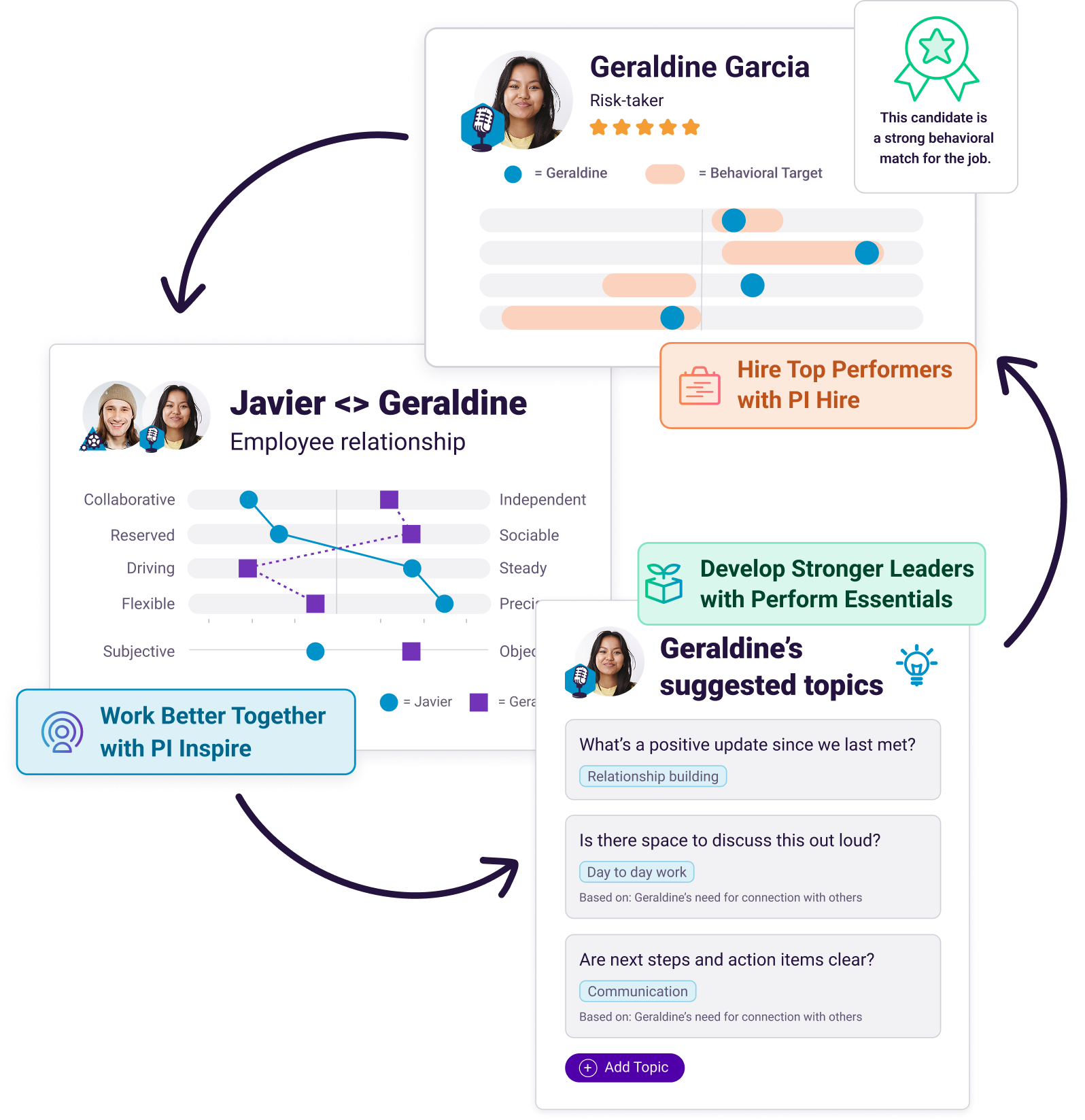At a recent team meeting, a colleague asked our manager if we could have a team lunch or dinner when the remote members of our team were in the office.
His response? “I’ll never plan a team outing.”
The learning team at PI is relatively new. There are seven of us, two of whom are remote. Most of us have only been on the team for a few months. When I sat down to write this, I realized I was the longest tenured employee of the group; I’ve been at PI for almost two years. Our newest colleague has been on the team for a month. While we’re all ramping up into our roles and getting work done, we’re also working on figuring each other out. In Tuckman’s stages of group development, we’re shifting from forming to storming.
At our weekly team meeting, our manager makes a point to carve out time to talk about building trust so we can operate as a cohesive unit and get work done efficiently and effectively. We talk through questions like:
- What does trust mean?
- How can we build trust with each other and gain the trust of others?
- What gets in the way of trust?
- How does trusting each other help us build better relationships throughout the organization?
So, when my colleague mentioned that a little “non-work” time together would help us build trust, the response from our manager was both jarring and confusing. The energy in the room completely shifted. It became quiet, and it felt like everyone was trying to process his statement, especially since it conflicted with everything we had heard and experienced up to that point.
He wants us to build trust, but he didn’t want us to get to know each other?
I had to speak up.

Why team issues arise
Team issues can arise when awareness of behavioral differences is nonexistent or ignored. With this in mind, I asked my boss to clarify: Was he saying he wouldn’t plan a team outing because he didn’t see the value in them, or was he saying that because he didn’t like to plan things?
My manager is an Adapter. He can be tough to read at times, and his communication style tends to be frank and direct, but I know that he cares about us and the role that our happiness plays in achieving results. I was pretty sure I knew the answer to my own question (he didn’t like to plan things), but I also knew it was vital to ask out loud and get confirmation.
Let’s unpack why this is so important.
- My manager has set a tone of openness and transparency by sharing that trust is part of the foundation we’re trying to build. He felt comfortable exposing his own vulnerability—one that he knows is important to having a strong team behind him. He doesn’t want to be in charge of planning the events, but he’ll absolutely attend. He knows the behavioral traits of the people on his team, which makes him more comfortable delegating this task, all while improving the engagement of those individuals.
- I felt comfortable speaking up to get clarification. What if the employee who has only been here a month thought, “Oh crap, my new manager doesn’t care enough about our team to have lunch together”?
- Our team respects our manager, his vision, and his willingness to go to bat for us. After all, he’s carving out time in our weekly team meetings to talk about trust! We can support him by helping him in an area where he knows he has a gap.
- PI’s culture is built around teamwork, honesty, reliability and transparency, energy, action, drive, and scope. As a company, we have to be able to have these conversations. How we get the work done is just as important as getting the work done.
How to make sure your team doesn’t have issues
It’s not easy to be a manager. You’re expected to be a lot of things to a lot of people. Managers are one of the top reasons employees leave a company and they have a lot of various initiatives on their plate. Knowing your strengths and opportunities—and being able to communicate them to your team—is vital not only to being a good manager, but a leader. When your employees see that you’re self-aware, you earn their trust.
It’s also not easy to call your manager out or ask for clarification, but organizations succeed when they empower leaders at every level. Individual contributors need to ask questions and hold managers accountable. Not speaking up when you’re not clear on something is like not voting. If your manager moves forward on something that you don’t understand or agree with and you don’t speak up, you can’t complain. Managers have a lot of great character traits, but they’re not mind readers, and they don’t always know the full downstream impact of their decisions.
Setting up team outings is a simple example, but these steps are important for any and every initiative a manager is trying to accomplish. To be honest, I’d rather my manager spend time getting us the right resources to be successful and, as long as we’re happy to do so, leave the event planning to us!
Join 10,000 companies solving the most complex people problems with PI.
Hire the right people, inspire their best work, design dream teams, and sustain engagement for the long haul.








